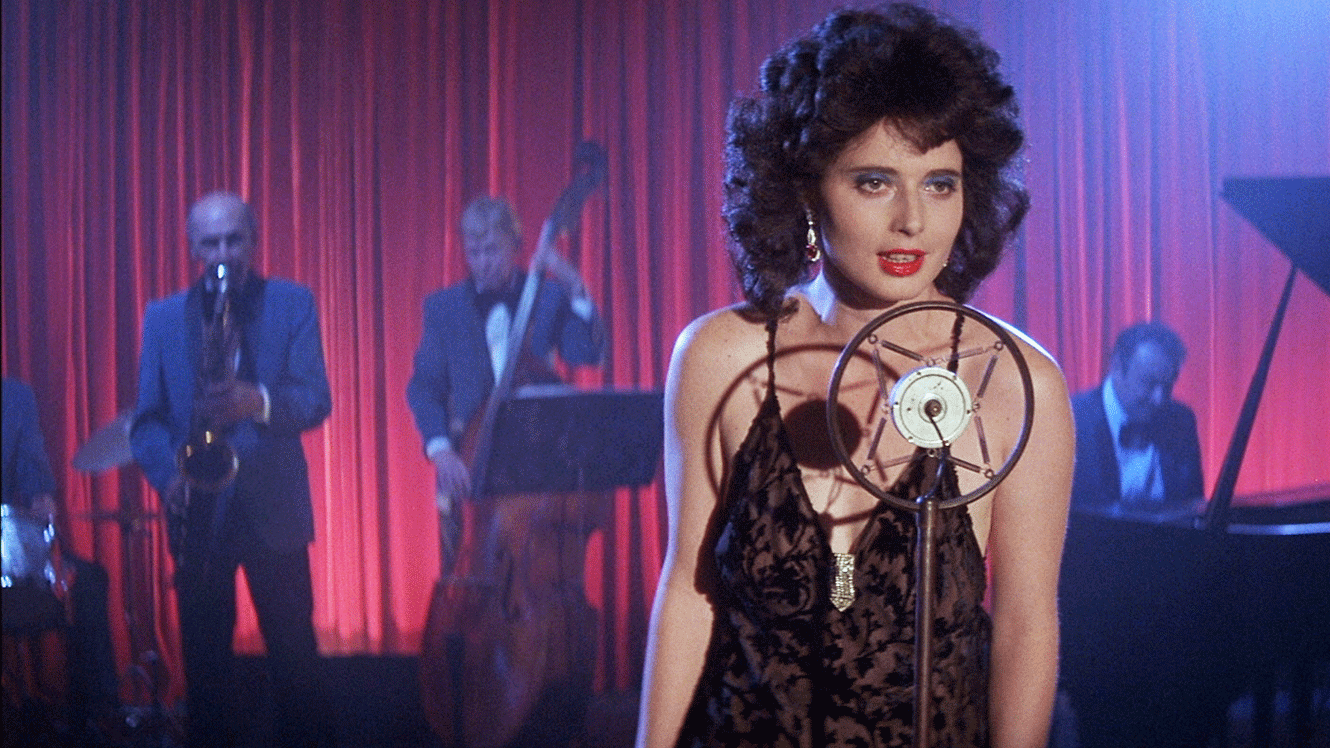Blue Velvet (1986)
This would be a different piece entirely if it was written upon first consideration of Lynch. Fact is, by the time it’s being written, I’ve not only screened Blue Velvet (Lynch’s 1986 miracle that solidified, to the general public and perhaps to Lynch himself, what his style of filmmaking was all about) multiple times, but also every film in his modestly-numbered canon. Style is an understatement. Lynch, by all rights, is an enviable piece of the cinematic puzzle, a step forward in the pantheon of filmmaking whose contributions are akin to Griffith, Vertov, Godard, Brakhage, the list goes on. Regarded in his day as a pop artist every ‘edgy’ publication could sink their teeth into, and later as ‘pretentious’ during the next-gen backlash, Lynch represents the mantras of a number of artistic disciplines infused with filmmaking in a way that not only breathed new life into the medium, but continued its evolution as a visual language. Eraserhead may have been a vicious blast of young creativity, but Blue Velvet is the fully-formed filmmaker at work making his first big statement.
It’s everything you’d expect, having seen his subsequent work; the flourishes of darkness, the Julee Cruise, the Orbison, all ingredients in a palette that’s spread across a canvas of all-too familiar American dreamscape. Lynch paints a picture over top of the world, but not the world as it is, or even the world as it ever was, he taps into the world we all know deep down, the world that we expected to find when we grew up, the world we ‘knew’ we’d find somewhere over the rainbow. I’ll save that reference for a Wild at Heart review. More than anything, Lynch sees a society wishing and hoping it could craft a world that lives up to Norman Rockwell, believing in their bones if they just close their eyes and wish hard enough, all the sadness in the world will just melt away. Meanwhile, below the perfectly trimmed lawn, just out of view, is a world of insects who devour one another, the law of the jungle still reigns where the eyes of the American dream don’t dare to look.
There is an apex moment in all Lynch films, and this one happens to arrive in the form of conversation in the car outside of a church. We’ve smiled at the opening imagery of suburbia, we’ve laughed at the bizarre dichotomy of the idyllic setting and the severed human ear, we’ve even gotten a wry thrill out of Jeffry’s diner-made plans of playing detective. Nothing prepares the audience, however, to be blindsided with a sudden jolt to their reptilian hindbrain. Enter Dennis Hopper’s Frank Boothe, a deranged Id unbound, like Mr. Hyde who will only becomes a sentimental Dr. Jeckyl when being serenaded by a 50’s pop song. It’s raw, it’s shocking, it’s strangely oedipal, and it’s so disruptive to the experience we thought we were having that the audience seems on the verge of mutiny. Suddenly, Jeffry utters the words “Why are there people like Frank? Why is there so much unhappiness in this world?”, and the entire film falls into place. Follow it up with Laura Dern’s monologue, her dream of Robins, and we’re transcending kitschy nostalgia cinema, we’re transcending shock cinema, we’ve found the world where both exist simultaneously, a.k.a. the collective American subconscious.
In many ways, Blue Velvet is the most accessible of Lynch’s personal films (I consider The Elephant Man and Dune to be Lynch more or less making films for-hire, and The Straight Story, as great as it is, is more of a weekend film, out of step with the rest of his filmography, which is half its charm) and it benefits from a deceptively complex narrative that arranges its beats to match our expectations enough that we’re unaware we’re being enlightened. All the classic boxes checked, we find our young protagonist confronting evil, vanquishing it and then all is right in the world. Simple enough, we assume, until the reality of what we’re seeing starts to take hold. Is any of this really plausible? How can the characters travel so far into the dark woods and emerge entirely unscathed?
At its core, Blue Velvet is a film about purity and defilement. The pure Sandy, daughter of a reputable police officer, angelic in both appearance and demeanor is Jeffry’s connection to the world of respectability, the world which he originates from. Dorothy, the enticing brunette, battered and bruised, with a husband, child and a sordid past, the subject of many horrors both imaginable and unimaginable. Purity is a strange human belief system, one that continues to be debated. Once corrupted, can the blood on one’s hands be washed clean? Can the corruption of a pure individual ever be undone. The most life-affirming aspects of Blue Velvet are that its characters firmly believe that, yes, it can be. Does Sandy cut Jeffry out of her life like a plague when she realizes his relationship with Dorothy? We’re entranced as she calls him later that night, sitting under the poster of Montgomery Clift (look him up for more on his relevance to all this), and confesses that she is still in love with him, no matter what.
The ending is laughable in its perfection. Jeffry’s father is in perfect health, the robins have returned to vanquish the bugs below the grass, Dorothy is saved and reunited with her son. We’d almost be fooled into believing that, somewhere over the rainbow dreams really do come true, except for Lynch’s final, beautiful touch. We hear Dorothy’s voice again, singing. “I still can see Blue Velvet through my tears”. If we dwell hard enough on the purity we hold onto, we can make all the horror vanish for ourselves, for just an instant, and that may be what life truly is in this world.
10

